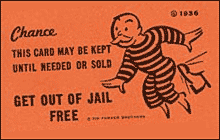“It is naively assumed that the fact that the majority of people share certain ideas and feelings proves the validity of these ideas and feelings. Nothing could be further from the truth. Consensual validation as such has no bearing on reason or mental health.”
Expats and travelers fill cafes and squeeze into restaurant booths around the world. Their tales and opinions saturate the air like heavy particles hovering over the Beijing skyline. The local culture is dissected and diagnosed by these physicians certified by their wanderlust and sanctioned by the consensus of the group and the evening's rites.
Here in Korea, we might overhear talk of Koreans' driving foibles, or the nature of Korean marital dynamics where women invariably become the family CFO and take forceful and unequivocal command of all monetary matters. You can sometimes hear talk of the local disregard for minding litter, the conversation invariably drifting off to Japan by way of comparison. "You can't so much find a cigarette butt on the streets of Japan," someone will say. And yes, likely too will be the mention of the eating of dogs, an ignominious cultural artifact that is rarely practiced these days.
On the other side we have the cultural defenders, the sympathizers who, having done their homework, herd most of the naysayers back into their culturally insensitive corrals. A Peace Corps document from the early 1970s served to remind newly arrived U.S. volunteers of the foolishness of their cultural missteps: "Korea is generally judged to be a less than developed nation. This judgment is based on many factors, but mainly those dealing with economic or materialist measurements. In the field of education, and from a Korean viewpoint, it might be difficult to accept a less developed label. If you had produced movable block printing in the 12th century, a written phonetic alphabet before Columbus discovered America, and had revered education with intensity of almost religious fervor, then you might not consider yourself less developed with regard to education."
Well, touche! And we will graciously ignore your culturally insensitive comment about Columbus "discovering"America.
Sometimes, we just need to give these cultural-dialectic, this back and forth criticism and defensiveness, a free pass; a "Get out of jail free" card like in the board game, Monopoly. Instead of vitriol, allow the prevailing westerlies to do their thing and blow the smog out of Beijing naturally.
The other night I went out to dinner with three Canadian friends. The food, drink and conversation were awesome. Somehow (am I guilty?), the conversation turned to Tim Hortons, the ubiquitous coffee and pastry franchise that adorns nearly every intersection across that grand country. Canadians forever sing the praises of their beloved "Timmy's." As an American, who has driven hundreds of miles and many hours, craving coffee and something, anything, to eat, and finally seeing a Tim Horton's on the horizon, well, it was an ugly experience. I could have been had so easily. But alas, the coffee was nearly undrinkable and the donuts, literally a cardboard substitute. Here, let some closet Canadians speak for themselves:
"They just built a Tim Hortons in the Midwestern town where I live and I would rather eat a box of donuts that I found on the side of the road than ever return there."
"Tim's could sell poop on a stick and out of Canada loyalty, Canadians would still buy."
But I smiled and kept my opinion to myself. My Canadian friends were happily adrift in their reverie for their national symbol. Going to "Timmy's" was like a religious experience for them. It was then that I realized I had needed to take out my Get out of Jail Free Card and figuratively hand it over to my Canadian friends. Why trespass on their cultural delusion? Was I going to judge Canada as being a less developed nation because of their blind faith toward Tim Horton's? Certainly not. After all, they have maple syrup and national health-care, don't they? And besides, when our most popular exports are McDonalds and Donald Trump, I have good reason to keep my tongue.





